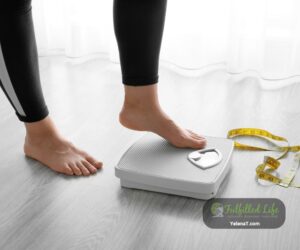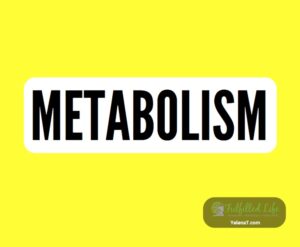"Life is not measured by the number of breaths we take, but by the moments that take our breath away."
Imagine this: You wake up to the blaring sound of your alarm, already feeling the weight of the day ahead. Your schedule is jam-packed, from back-to-back meetings to endless to-do lists. The constant buzz of notifications on your phone keeps you tethered to your responsibilities. You’re sprinting through life, but are you truly living it? I’ve been there, and I want to share my journey of breaking free from the relentless grip of stress addiction.
My Hidden Battle
It all started innocently enough – a demanding career, juggling family responsibilities, and the ceaseless chase for success. I prided myself on being a woman who could conquer it all, a real-life superwoman, or so I believed. Little did I realize that beneath my facade of busyness lay a silent battle with stress addiction.
Unlike the addictions we commonly hear about, stress addiction doesn’t involve substances; it’s an emotional and psychological reliance on stress as a way of life. It’s that adrenaline surge from meeting deadlines, the sense of accomplishment derived from perpetual busyness, and the unfounded belief that stress equates to success. I was ensnared before I even recognized it.
The Camouflaged Signs
The tricky thing about stress addiction is that it can sneak into your life unnoticed. We live in a world where being constantly busy is worn like a badge of honor. However, it’s crucial to recognize the subtle signs:
Stress addiction is a crafty adversary; it infiltrates our lives subtly and often remains unnoticed. We live in a world where perpetual busyness is worn as a badge of honor. Nevertheless, it’s imperative to spot these subtle signs:
- Incessant Activity: An inability to sit still, even during moments of rest, where relaxation feels like an unattainable luxury.
- Physical Warnings: Frequent headaches, digestive problems, muscle tension, and disrupted sleep patterns that we dismiss as normal.
- Emotional Turmoil: Oscillating between anxiety, irritability, and an insatiable need for external validation.
- Self-Neglect: Prioritizing duties over self-care, leading to skipped meals, inadequate sleep, and a dearth of exercise.
- Persistent Worry: Finding it arduous to silence your thoughts, with concerns about tasks, deadlines, and responsibilities continually buzzing in your head.
- Perfectionist Urges: An unrelenting pursuit of perfection, where even minor imperfections or errors feel unbearable, resulting in excessive self-criticism.
- Obsessive Planning: A fixation on planning every facet of your life, down to the minutiae, leaving no room for spontaneity or relaxation.
- Procrastination Paradox: Surprisingly, procrastination can be a sign of stress addiction. You may delay tasks until the last minute because you’ve grown accustomed to functioning better under intense pressure.
- Escapist Habits: Turning to substances like alcohol, nicotine, or caffeine as coping mechanisms, or engaging in excessive shopping, online browsing, or overeating as a form of escape or reward.
- Loss of Enjoyment: Struggling to find joy or relaxation in activities that once brought pleasure, as your mind remains preoccupied with impending tasks.
- Fictitious Busyness: Feeling the constant need to appear busy, even when idle, to meet either perceived societal or self-imposed expectations.
If any of these signs resonate with you, it might be time to acknowledge the presence of stress addiction in
your life. Recognizing these signs is the first step towards breaking free from its grip and rediscovering balance and well-being.
The Far-Reaching Impact
Stress addiction, if left unchecked, can cast a long shadow over every facet of our existence:
- Mental Well-being: Stress addiction tends to amplify anxiety, perpetuating a state of constant unease. As we tirelessly pursue perfection and productivity, the imposter syndrome takes hold, causing every achievement to feel like an accident. This relentless drive can lead to profound self-doubt and eventual burnout.
- Physical Health: The human body, designed to withstand stress in short bursts, is adversely affected by chronic stress. The relentless pressure wreaks havoc on our physical well-being. Here are some of the health tolls that stress addiction can take:
- Weakened Immune System: Chronic stress weakens our immune defenses, making us more susceptible to illnesses and infections.
- Frequent Headaches: Stress can trigger persistent headaches, leaving us battling pain on a regular basis.
- Muscle Tension: The constant state of alertness leads to muscle tension, which can result in discomfort and pain.
- Digestive Problems: Stress can disrupt digestive processes, causing a range of gastrointestinal issues, from indigestion to irritable bowel syndrome (IBS).
- Sleep Disturbances: Stress often leads to sleep disturbances, making it difficult to attain the restorative sleep our bodies need.
- Relationships: Stress addiction can strain our relationships as we find it challenging to switch off from work mode. We may be so preoccupied with our own expectations and pursuits that we forget to enjoy the simple moments with loved ones. The incessant drive for perfection can make it difficult to connect with others on a genuine level.
- Quality of Life: Ironically, the relentless pursuit of perfection can hinder productivity. We might spend an excessive amount of time obsessing over details, which can lead to procrastination and missed opportunities.
- Addictive Behaviors: In our quest for a momentary reprieve from the unending pressure, we often resort to what seems like ‘rewards.’ It’s not uncommon for stress addicts to turn to substances like alcohol, sugary snacks, or processed foods as a coping mechanism. These momentary escapes can easily morph into addictions of their own, as they provide a temporary respite from the demands of our lives. Additionally, we might engage in impulsive shopping sprees or other addictive behaviors as a way to soothe our frazzled nerves.
Rediscovering Balance
Recognizing the far-reaching impact of stress addiction is the first step toward liberation. To regain control over your life and well-being, consider these holistic strategies:
- Find Your Purpose: Beyond the demands of daily life, discovering a sense of purpose can be profoundly fulfilling. Engaging in meaningful activities, like volunteering for a cause you’re passionate about, can help shift your focus away from stress-inducing factors and toward something bigger than yourself. Psychologically, this redirection of focus can reduce stress and increase overall well-being.
- Engage in a Hobby: Dedicate time to a hobby that brings you genuine joy. Whether it’s the meditative process of painting, the emotional outlet of playing a musical instrument, the grounding experience of gardening, or any other activity you adore, hobbies offer an escape from the relentless pressures of life. Engaging in activities you love can activate the brain’s pleasure centers, promoting relaxation and stress reduction.
- Connect with Nature: Nature has a unique ability to calm the mind and soothe the soul. Spending time outdoors, whether it’s a hike in the woods, a peaceful picnic in the park, or a leisurely walk in your neighborhood, can activate the body’s relaxation response. Exposure to natural settings has been scientifically linked to reduced stress levels, making it a powerful tool for combating stress addiction.
- Digital Detox: Regularly unplugging from screens and technology can work wonders for your mental well-being. Excessive screen time can contribute to stress and anxiety due to information overload and the constant bombardment of notifications. Disconnecting for a few hours or even a full day provides a mental break, allowing your brain to reset and regain focus.
- Practice Gratitude Daily: Cultivating a daily gratitude practice shifts your perspective from what’s lacking to what’s already abundant in your life. It activates the brain’s reward center, releasing feel-good neurotransmitters like dopamine and serotonin. This simple habit can help elevate your mood and create a positive outlook.
- Embrace Mindful Eating: Pay attention to your eating habits. Mindful eating involves savoring each bite, eating slowly, and paying attention to the flavors and textures of your food. This practice can help you develop a healthier relationship with food and reduce stress-related overeating.
- Journal Your Thoughts: Keeping a journal can be a powerful tool for self-reflection and stress management. Write down your thoughts, feelings, and experiences. It can help you gain clarity and identify patterns that contribute to stress addiction.
- Laughter Yoga: Laughter truly is the best medicine. Laughter yoga combines laughter exercises with yogic deep-breathing techniques. It may sound unconventional, but laughter yoga has been found to reduce stress hormones and boost mood. The act of laughter, even when forced initially, triggers the release of endorphins, which are the body’s natural mood lifters.
- Connect Socially: Nurture your social connections. Spending quality time with friends and loved ones can provide emotional support and a sense of belonging. Share your journey with them and lean on their support when needed.
- Learn to Say No: Practice setting boundaries and saying no when necessary. Overcommitting to obligations can lead to stress and burnout. Prioritize your well-being by only taking on what you can manage comfortably.
- Professional Guidance: If stress addiction continues to affect your life significantly, consider seeking professional guidance from someone who specializes in these issues. They can provide tailored strategies and support to help you navigate this journey effectively.
- Mindful Breathing Exercises: Incorporate mindful breathing exercises into your daily routine. Deep, intentional breaths can help you stay centered and reduce stress levels, especially during moments of tension.
- Yoga and Exercise: Regular physical activity, such as yoga, can be an excellent stress reliever. Yoga combines movement with mindfulness, helping you stay present and reduce stress.
Breaking free from stress addiction is a journey toward a more balanced and fulfilling life. It’s about realizing that you don’t have to sacrifice your well-being for success. You can be productive, ambitious, and successful while still nurturing your mental and physical health.
My journey to break free from stress addiction wasn’t without challenges, but it was a choice I made with determination. Today, I extend my hand to guide you on your journey towards a more balanced and fulfilling life.
If this article has resonated with you, I encourage you to share it with others who might be navigating the same path. And remember, you don’t have to go through this alone. If you need assistance or wish to explore this topic further, don’t hesitate to reach out.
In closing, let me leave you with this thought: Stress addiction may have been a part of your life, but it doesn’t have to define your future. Embrace the path to freedom and well-being—you deserve it.








